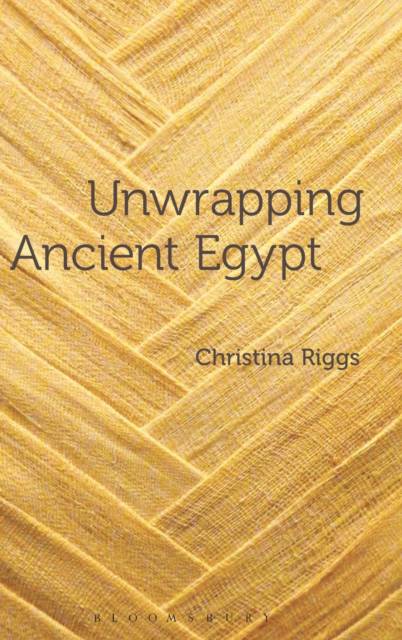
- Retrait gratuit dans votre magasin Club
- 7.000.000 titres dans notre catalogue
- Payer en toute sécurité
- Toujours un magasin près de chez vous
- Retrait gratuit dans votre magasin Club
- 7.000.0000 titres dans notre catalogue
- Payer en toute sécurité
- Toujours un magasin près de chez vous
Unwrapping Ancient Egypt
The Shroud, the Secret and the Sacred
Christina Riggs
Livre relié | Anglais
373,45 €
+ 746 points
Format
Description
In ancient Egypt, wrapping sacred objects, including mummified bodies, in layers of cloth was a ritual that lay at the core of Egyptian society. Yet in the modern world, attention has focused instead on unwrapping all the careful arrangements of linen textiles the Egyptians had put in place.
This book breaks new ground by looking at the significance of textile wrappings in ancient Egypt, and at the way their unwrapping has shaped the way we think about the Egyptian past. Wrapping mummified bodies and divine statues in linen reflected the cultural values attached to this textile, with implications for understanding gender, materiality and hierarchy in Egyptian society. Unwrapping mummies and statues similarly reflects the values attached to Egyptian antiquities in the West, where the colonial legacies of archaeology, Egyptology and racial science still influence how Egypt appears in museums and the press. From the tomb of Tutankhamun to the Arab Spring, Unwrapping Ancient Egypt raises critical questions about the deep-seated fascination with this culture - and what that fascination says about our own.Spécifications
Parties prenantes
- Auteur(s) :
- Editeur:
Contenu
- Nombre de pages :
- 336
- Langue:
- Anglais
Caractéristiques
- EAN:
- 9780857855398
- Date de parution :
- 05-06-14
- Format:
- Livre relié
- Format numérique:
- Genaaid
- Dimensions :
- 160 mm x 239 mm
- Poids :
- 771 g

Les avis
Nous publions uniquement les avis qui respectent les conditions requises. Consultez nos conditions pour les avis.






